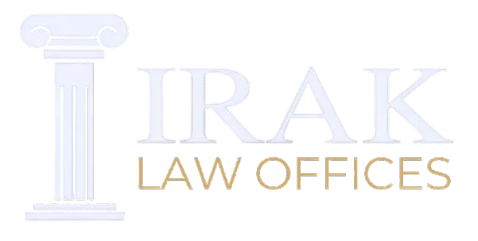If you are a business owner, are you taking the necessary steps to protect your assets from substantial loss? Keep reading to discover what you need to know!
Limited Liability Companies (or “LLCs”) are by far the most popular entity-type used for startup companies today in the United States. This is primarily due to: (1) the high level of flexibility offered by LLCs; (2) the impression of professionalism LLCs create when properly managed; and (3) most importantly, the highly valuable liability-protection mechanisms LLCs are designed to provide. Nonetheless, missteps in the beginning stages of organization can often lead to business owners unintentionally forfeiting these benefits, and putting even their non-business-related assets (e.g., the money in your savings account) at high risk.
In this article, I will discuss the paramount importance of the liability protection offered by LLCs, as well as how to maintain that liability protection. I will also provide important tips on spotting and correcting the most common LLC “pitfalls” that business owners — both small and large, startup and experienced — sometimes trip over.
LLCs, LAWSUITS, AND LIABILITY EXPLORED
We live in a society that is morbidly obsessed with litigation, and this is nowhere more true than in the world of business. I do not celebrate this fact despite the money it provides for my bills — I simply do not believe that a business owner should have to fear that he or she could “lose it all” over a company he or she started while chasing a dream. Unfortunately, the old cliche is not hyperbole; that is, when an entrepreneur fails to plan . . . they plan to fail. I would like to help you plan to succeed.
While there are never 100% foolproof solutions to anything in business, when it comes to business creation and shielding liability, there are highly effective safeguards inherent in the law for those who know how to use them. There exist several “vehicles” of limited liability, including C-Corporations, S-Corporations, Limited Partnerships, Limited Liability Partnerships, and Limited Liability Companies (the latter being our focus for this point in time).
Limited Liability Companies tend to have more contractual flexibility than other entity types — for example, while annual meetings of LLC members can be waived through contract in Indiana, such meetings are mandatory for Indiana corporations (even if you have nothing to talk about), and the Secretary of the corporation even needs to keep minutes. Moreover, as your accountant would likely tell you first and foremost, LLCs are generally taxed as “pass-through entities” and are thus not subject to so-called “double taxation” like a C-Corporation is.
The limited liability protection of the LLC makes it an attractive choice for a wide variety of businesses spanning nearly every industry. The general rule is that if an LLC loses a lawsuit, the plaintiff (that is, the person or entity that sued and won) can recover payment from out of the assets of the LLC only — the personal assets belonging to the LLC’s owner or owners are off-limits and out-of-reach. This protection is not the default rule for those who start a business blind, without properly forming an LLC with the Secretary of State’s office.
Please allow me to demonstrate the limited liability shield of an LLC with an (entirely fictitious, product of my own imagination) example:
~~~ EXAMPLE: Hillary sues “Trump’s Winning Wall LLC”, an Indiana Limited Liability Company owned by Donald, in a civil lawsuit for alleged negligence of Trump’s Winning Wall LLC. Hillary wins the lawsuit (despite stunning rumors that she was fed questions from the jury before trial ever started — but disregard for now, as we will leave the topics of courtroom misconduct for another blog post). Because Hillary won, the Judge orders a judgment be enforced against Trump’s Winning Wall LLC, with damages in the amount of $3,000,000 owed to Hillary.
Trump’s Winning Wall LLC has zero liabilities, and the following assets: $50,000 cash in the LLC bank account; several hundred pounds of bricks and steel collectively worth $150,000; and a piece of real estate which is valued at $300,000. Thus, Trump’s Winning Wall LLC, as a distinct business entity, owns $500,000 in assets [i.e. $50,000 + $150,000 + $300,000]. So, in response to the Judge’s order, Donald is forced to act on behalf of his LLC to do the following: withdraw the cash; sell off the bricks and steel at fair market value; sell off the real estate at fair market value; and pay Hillary the $500,000 in cash. At this point, Donald properly closes down (or “dissolves”) Trump’s Winning Wall LLC. But what about the other $2.5 million owed (since the judgment was for $3,000,000, but Trump only paid $500,000)?
Here’s where the benefits of the properly organized and properly managed LLC become crystal clear. Despite this half-million dollar payment comprising only a fraction of the total owed, and despite the judgment being legally valid, the creditor (Hillary) now faces a big problem. If Donald has fully followed his lawyer’s advice (keep in mind this is a hypothetical, so we will assume Trump used a better lawyer than Michael Cohen!) — and that, wanting to protect his assets, he stringently complied with the rules and formalities for organizing/maintaining his LLC — then, in this case, the remaining $2,500,000 of the judgment that he owes will be essentially uncollectable.
In other words, barring extraordinary circumstances, Hillary will not see another penny of the $2.5 million remaining balance; because it is the LLC itself, not the LLC’s owner, that owes the money (and the LLC is now broke and dissolved — there’s no squeezing blood from a turnip).
Without the diligent strategic LLC setup alluded to above, the remaining money would be owed straight out of Donald’s personal wallet (or your wallet if it was you — irrespective of if the Judge or jury was correct when he/she/they decided your loss).
In our hypothetical scenario, Hillary CANNOT make Donald pay the remainder using Donald’s personally-owned assets, because (a) Trump’s Winning Wall LLC lost the lawsuit, not Donald as an individual, and (b) Donald followed the correct protocol during the LLC’s creation and throughout its lifespan, so Hillary was unable to “pierce the veil” [more on that below]. Because of the protection of the LLC, Donald will not owe Hillary any money out of his personal funds despite only paying 1/6th of the judgment. END OF EXAMPLE ~~~
THE LLC OPERATING AGREEMENT
One must remember, however, that simply forming an LLC alone, without properly structuring and maintaining it according to the requirements of law, may be wholly inadequate to ensure protection from personal liability. There exist certain circumstances where the limited liability shield can be “broken” if improper structuring or improper management can be proven. To examine the specifics of this issue, we first need to discuss the LLC Operating Agreement (which I will sometimes call the “OA”), a document of particular importance.
Two-page excerpt from the beginning of a specialized LLC Operating Agreement, drafted by IrakLaw’s attorneys [with the client information redacted].
In essence, the OA is a binding legal document, or a contract, ranging anywhere from a couple pages long to hundreds of pages long — with the OAs I draft generally ranging between 10 and 80 pages (strictly depending on the needs of the client). The OA establishes the rules, regulations, and procedures of your LLC. Additionally, the OA is crucial in both single-member and multi-member LLCs.
However, in multi-member LLCs, its importance extends further. For a multi-member LLC, the OA dictates the ownership division between the members; establishes the responsibilities of each member, manager, and/or officer; sets forth the flow of tax liability and payments of cash to members through “Allocations” and “Distributions”, respectively; arranges the voting structure and protocols; and sets forth the procedures for winding-up, liquidation, and dissolution of the business. (All these provisions should be professionally tailored to comply with applicable Indiana state law, federal and state securities regulations, and the Internal Revenue Code.)
Without an Operating Agreement, the Indiana-based LLC-owner or owners are bound by the “default provisions” of the Indiana Business Flexibility Act [see Indiana Code 23-18-1 et seq.] — default rules that are well-intentioned but rarely ideal. Fortunately, Indiana courts frequently emphasize the importance of freedom to contract, and allow almost all provisions of the Indiana Business Flexibility Act to be superseded by contrary provisions in the OA if the members clearly intend to do so.
Furthermore, through an Operating Agreement specifically tailored to your LLC, you can create specialized provisions that greatly reduce yours costs and risks in the future. For example, you can have an attorney manually craft “dispute resolution provisions” to fairly resolve conflicts between members without going to court, potentially saving thousands in legal fees and months of time. As another example, if you have a two-member LLC and both members rely on the specific skills of the other, you can put in place reasonable restrictions/conditions regarding attempts for a member to sell his or her ownership. Moreover, working in conjunction with a tax professional, you can have highly specific rules drafted for how cash will be distributed to the members (such as when, how, to whom, in what amounts, and under what conditions).
An Operating Agreement, carefully drafted and followed by the members, is the first important step to protecting you from personal LLC liability. If you need an OA drafted from scratch — or you would like your current OA read through by a legal professional — contact me to schedule a free consultation, where can discuss all your potential issues and come up with a plan at your convenience.
“PIERCING THE VEIL” — RULES AND RISKS
As discussed in the beginning, perhaps the most important aspect of the LLC is the fact that it is designed to protect your personal assets from liability in context of your business operations. However, all LLC owners must keep in mind what is known as piercing the corporate veil (in this context, the term “corporate” includes LLCs). If a plaintiff sues an LLC and not only wins in court, but also “pierces the veil”, then the LLC owner becomes personally liable to the plaintiff for anything owed beyond the assets of the LLC (so in the earlier example, if Hillary had pierced the veil, Donald would have owed her the $2.5 million out of his pocket).
To piece the veil, a plaintiff must successfully argue that the LLC and its owner(s) are simply “alter-egos” of one another, and are not truly distinct legal persons. Legal diligence and preparation is crucial to prevent this from happening to any of your businesses.
Under Indiana law (according to the Indiana Supreme Court as of the time of this writing), to pierce the corporate veil, a plaintiff must prove that (1) the corporate [or LLC] form was “so ignored, controlled or manipulated that it was the mere instrumentality of another” and (2) “that the misuse of the corporate form would constitute a fraud or promote injustice.” Escobedo v. BMH Health Assocs., Inc., 818 N.E.2d 930, 933 (Ind. 2004). Many sub-factors are part of what can become a highly complex analysis, which is beyond the purview of this article. Fortunately, however, there are steps an LLC owner can take now to protect against any future plaintiff trying to pierce the veil of the LLC.
ADDITIONAL IMPORTANT STEPS TO SHIELD YOUR ASSETS FROM UNWANTED LIABILITY
While having a well-written OA is crucial, it is not the only condition that must be satisfied to shield oneself from personal liability. While the following list is not exhaustive, I have summarized below many of the most important additional steps necessary.
When forming and operating an Indiana LLC, always remember:
(i) Articles of Organization and Registered Agent. First, make sure your affairs remain in order from the outset. Your LLC must have written, approved Articles of Organization on file with the Indiana Secretary of State — the Articles of Organization can be automatically generated online, and put on file when the LLC is created through the Indiana Secretary of State business website (requiring a ~$97.00 filing fee to be paid for the LLC’s formation). In addition, an Indiana LLC must have a “registered agent” and a “registered office” within the State of Indiana; this is the person/address (respectively) that a potential claimant could deliver a Summons and Complaint to for a lawsuit against the LLC. Again, this information is entered into the Secretary of State website when creating the LLC online. Furthermore, under Senate Bill 377, an Indiana LLC must at all times keep its registered agent informed of the name, business address, and business phone number of a natural person who is authorized to receive communications from the registered agent.
(ii) Conduct Business Expressly Through the LLC. Next, remember that if you are personally transacting on behalf of the LLC, you must not keep this a secret. For example, all of your LLC’s contracts with third persons should name the LLC as the party. Any authorized member or manager can sign on behalf of the LLC, by structuring the signature block for the LLC as follows below.
EXECUTED BY: [Name of the LLC]
[Signature of Authorized Member’s Name]
[Printed Name and Title of Authorized Member]
Which may end up looking something like this:
EXECUTED BY: YourStartupVenture LLC
John N. Trepeneur (Signed)
John N. Trepeneur, as Member and duly authorized representative (Printed)
(iii) Separate LLC Bank Account and “Initial Capital Contributions.” Additionally, you need to open a separate bank account for your LLC (after retrieving your EIN number from the IRS website database, available to the public Monday through Friday from 6 a.m. to 9 p.m. CST) as soon as possible after creating the LLC. Each of the co-founders should make an “initial capital contribution” to the company that is proportional to his or her respective ownership. An initial capital contribution can be cash or, more rarely, non-cash property (always see an accountant or other tax expert if you are contributing any non-cash property). Unless you have done complex tax planning, the net value of the property contributed by each member should be exactly proportional to his or her respective membership interest (i.e., “ownership percentage”) in the LLC. Initial capital contributions should always be documented in the text of the Operating Agreement (and, for large contributions or contributions of non-cash, in an additional, separate document as well).
For example, let’s pretend that three individuals are forming an LLC and are each contributing cash for their initial capital contribution. Member A will own 25% of the company; Member B will own 25% of the company; and Member C will own 50% of the company. The members estimate that their startup costs for the first month will be $10,000, and decide to base their initial capital contributions on this number. Member A would contribute $2,500 cash (that is, 25% of $10,000); Member B would contribute $2,500 cash (that is, 25% of $10,000); and Member C would contribute $5,000 cash (that is, 50% of $10,000). Exhibit 1 of their Operating Agreement would document receipt of these contributions, the date, and the respective amounts of equity transferred in exchange. [Note: For large-scale startups, founders may wish to involve their attorney and CPA in a discussion regarding 83(b) elections to potentially reduce taxable income. 83(b) elections must be filed within 30 days of when equity is distributed and are not applicable to all startup situations.]
(iv) No Personal Commingling. Never co-mingle (that is, mix or overlap) funds between the LLC’s bank account and your personal bank account(s).
(v) No Business Commingling. If you own multiple businesses, never co-mingle funds between your business accounts. Furthermore, ensure that your multiple businesses are distinct enough that they will not be considered “alter-egos” of one another. Some factors to consider are: Do the businesses have highly similarly structured owners/officers/managers? Are the business’ names practically synonymous and their purposes (on paper and in practice) essentially identical? Do they share common offices, logos, telephone numbers, websites, and other resources? If so, then you run the risk of a court “piercing the veil” between the two businesses and treating them as one single entity for purposes of collection (and potentially even more piercing directly to the owners, depending on the fact pattern).
(vi) Keep LLC Bills and Income in Order. Pay all bills of the LLC using exclusively LLC funds (such as by using a check with the LLC’s legal name on it), and deposit all income of the LLC into the LLC bank account. Note that you absolutely can still use the money your LLC makes, but look to the “Distributions” sections of the Operating Agreement and follow those procedures and all applicable law precisely when doing so to achieve best results. Additionally, always hold title to all LLC assets in the LLC’s name.
(vii) Keep Company Files in Order. Maintain a “Company Records” file with all of your LLC’s documents in it including the Operating Agreement, Articles of Organization, and meeting minutes, and make it available to other members of the LLC upon reasonable request. Ensure in the Operating Agreement that meetings can be called as frequently as necessary, but do not make the mistake of mandating annual meetings and then never actually holding them. Follow the procedures agreed upon in your Operating Agreement.
(viii) Consult with an Accountant. Speak with a certified public accountant to ensure that you remain in compliance with all tax law and the United States Treasury Regulations and Internal Revenue Code while operating your LLC, particularly regarding maintenance of members’ “capital accounts”.
(ix) Enforce the Rules You’ve Created. Don’t forget to actually follow (and enforce) the rules that you and your business partners create for yourselves and have written into the Operating Agreement (or if you have inexplicably decided not to have an Operating Agreement, then follow the rules of the Indiana Business Flexibility Act as it relates to LLCs). Proven failure to abide by the Operating Agreement, or the default rules if an Operating Agreement is absent, represents strong evidence that the LLC exists simply as an “alter-ego”.
(x) Never Permit Transfers of 50% or More LLC Interests During a 12-Month Period. Ensure that, when considering all LLC members cumulatively, there is never a transfer of 50% or more of the total interest in the LLC’s capital and profits during any 12-month period – if this occurs, it is likely to result in the forced dissolution (i.e. mandatory shutdown) of your LLC, under Internal Revenue Code Section 708. One of the benefits of an Operating Agreement is the ability to place precisely-tailored conditions that must be satisfied before a transfer of ownership may occur; in this way, the company (as controlled by the knowledgeable members) can prevent the uninformed members from accidentally dissolving the LLC through activation of this law.
(xi) Keep Your LLC Adequately Funded. Ensure your LLC is never grossly underfunded (for instance, if your LLC has expenses of $10,000 per month but you only ever keep $100 in the LLC bank account, your LLC begins to look much less like a separate entity and more like an “alter-ego”). In Indiana courts, this factor has been given additional weight and significance when it comes to the “piercing the veil” analysis. If you are part of a multi-member LLC, be certain that additional company funds are raised properly through “capital calls” in accordance with the methods explicated in the Operating Agreement.
(xii) Do Not Neglect an Operating Agreement for Single-Member LLCs. While Operating Agreements for LLCs with one member do not require the level of detail and nuance of those for multi-member LLCs, it is important for the sole-owner of a business to have one nonetheless. In this way, the sole-owner provides evidence that he and his business are separate legal entities (and therefore, that his limited liability should be maintained).
(xiii) Records and Business Entity Reports. Finally, keep your records with the federal government and the Indiana Secretary of State updated, and fill out your biannual Business Entity Reports with the Secretary of State (it’s an easy 10 minute process, and failure to complete it will likely result in “Administrative Dissolution” of your LLC).
While initially this may seem like a lot to take in, the benefits to your business exponentially outweigh the effort. It’s difficult to put a price on peace of mind — especially the peace of mind that comes from securing and protecting the financial well-being of you and your family. Employing a properly formed and managed LLC as the entity through which you, alone or with co-founders, run your business is an excellent way to affordably secure that peace of mind.
CONCLUSION
I sincerely hope that this article was useful to anyone managing, or thinking of forming, a Limited Liability Company. Having co-founded and managed several LLCs myself (both prior to and after becoming an attorney), I know how intimidating — and profoundly rewarding — the journey of entrepreneurship can be. Don’t hesitate to reach out if I can answer a question and make this process easier for you.
And lastly, if you would like assistance with anything discussed in this article — whether LLC formation, Operating Agreement drafting/redrafting, or otherwise — please send me an email or give my office a call, and we can schedule an in-person or telephonic consultation, completely free of cost to you.
Thank you kindly for your time and attention, and best of luck in all your future endeavors! God bless.
Very Truly Yours,
Christopher J. Irak
Attorney at Law (State of Indiana)
[email protected]
(219) 769-4552
(P.S. Even though I am a licensed attorney in Indiana, I am not presently your attorney, unless and until you and I have explicitly reached an agreement to that effect. Therefore, please do not construe any part of the above article as legal, tax, or professional advice of any kind.)




